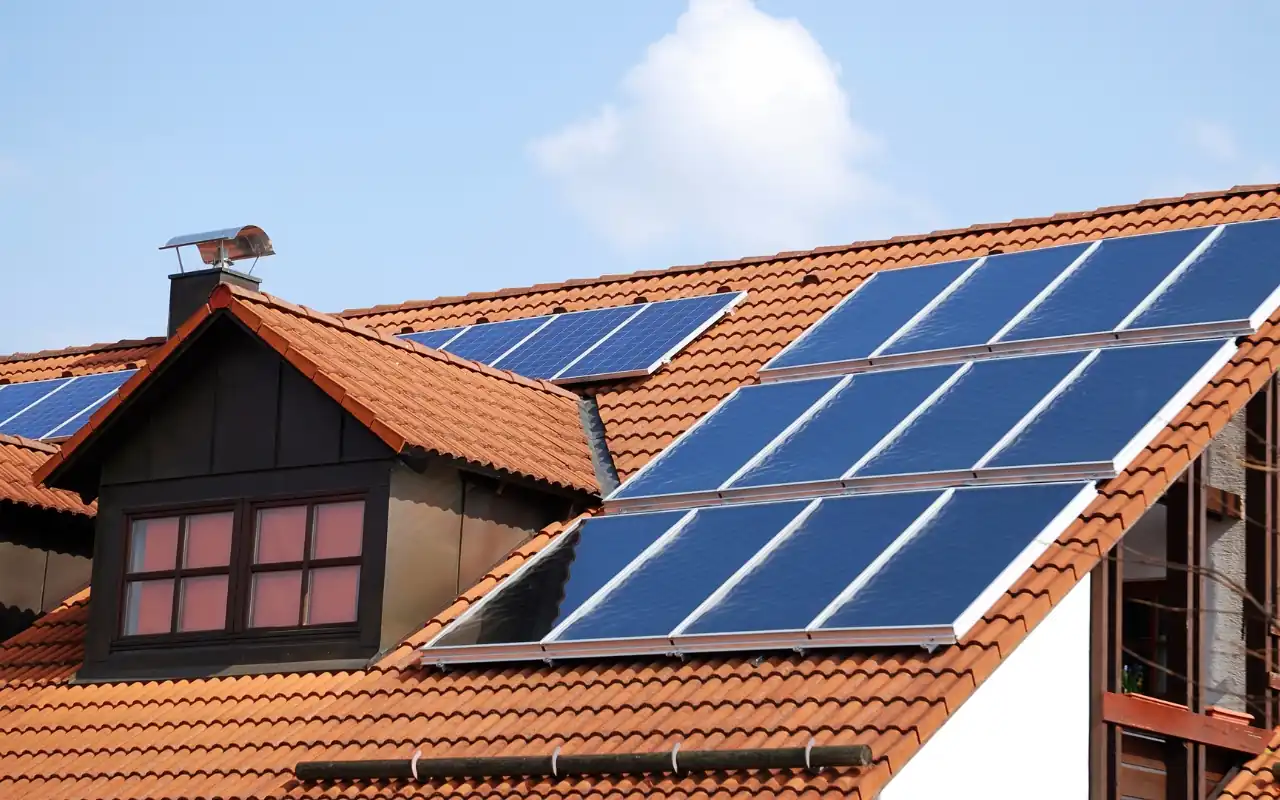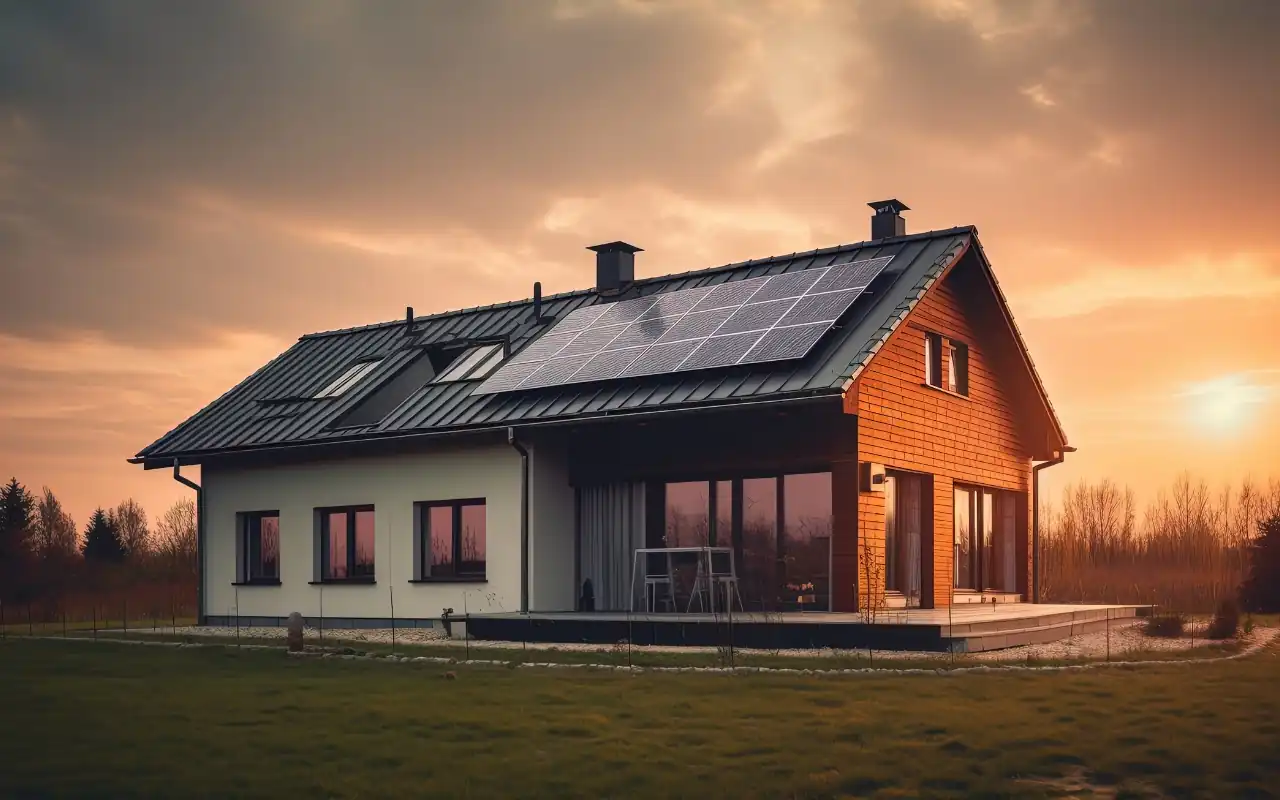
Innovative Roofing Materials for Solar Panel Installation
In the quest for eco-friendly living, suitable roofing materials can dramatically enhance solar panel efficiency. Have you ever wondered how the choice of your roof impacts your solar installation? This blog will explore innovative roofing materials that not only support but optimize the performance of solar panels.
Discover how advanced materials, from lightweight tiles to reflective coatings, can transform your home into a more sustainable abode. Stay with us as we delve into the options that meld durability with eco-efficiency.

Exploring the Best Roofing Materials for Solar Panel Efficiency
When integrating solar panels into your home, choosing the right roofing materials is crucial for maximizing the effectiveness of your solar investment. Here’s a detailed guide on selecting the best options to enhance your system’s performance.
Solar-Ready Roofing Tiles
Solar-ready tiles are designed specifically for photovoltaic integration. These innovative tiles seamlessly integrate with your solar panels, providing a sleek appearance while enhancing the system’s efficiency. They also reduce installation costs by eliminating the need to drill holes into your existing roof.
Metal Roofs
Metal roofs offer excellent benefits for solar installations due to their durability and high reflectivity. They reflect sunlight, which helps keep your home cooler and extends the life of the solar panels by reducing their thermal load. Additionally, metal roofs are easy to install and provide strong resistance against high winds, making them ideal for areas prone to severe weather.
Rubber Slate Tiles
Rubber slate tiles are lightweight, easy to shape, and fit various roof dimensions perfectly. They offer a long lifespan and require minimal maintenance, which benefits homeowners looking to invest in solar technology. Their impact resistance ensures that both your roof and the solar panels are well-protected from environmental elements.
Green Roofs
Green roofs, which are covered with vegetation, are gaining popularity for their insulating properties and environmental benefits. When paired with solar panels, green roofs can significantly reduce energy consumption. They insulate your home, keeping it warmer in winter and cooler in summer, which optimizes solar cell efficiency.
Composite Shingles
Composite shingles are another excellent choice for those installing solar panels. They mimic traditional materials like wood or slate and offer the durability and flexibility needed for solar installations. These durable, eco-friendly shingles are made from recycled materials, appealing to environmentally conscious homeowners.
Cool Roofing Technology
Cool roofing materials reflect more sunlight and absorb less heat than standard roofing materials. These roofs greatly reduce surface temperature, lower indoor heat transfer, and boost solar panel efficiency. This technology is particularly effective in hot climates where cooling demands are high.
Clay and Concrete Tiles
Clay and concrete tiles are durable and insulate well, making them great for solar panel installations. These tiles can withstand high temperatures and harsh weather conditions, making them a long-lasting investment. Their heavy weight ensures stability, which is crucial for supporting the additional weight of solar panels.
Understanding each roofing material’s benefits helps homeowners choose options that meet their energy and style needs. With the right materials, your roof can enhance your home’s energy efficiency while supporting a sustainable future.
How to Prepare Your Roof for Solar Panel Installation
Proper preparation of your roof is essential for a smooth solar panel installation. By addressing certain factors beforehand, you can optimize the performance and longevity of your solar system. Follow these steps to get your roof solar-ready.
- Evaluate Roof Condition and Longevity
Before installing solar panels, evaluating your roof’s overall condition is essential. Consider the age of your roof and whether it can last at least as long as your solar panels, typically around 25 years. If your roof is nearing the end of its lifespan, consider replacing it to avoid future disruptions to your solar system.
- Verify Structural Integrity
Solar panels add extra weight to your roof, so ensuring your roof’s structure can handle the load is essential. A roofing contractor can assess whether additional reinforcements are necessary, particularly for older or lighter roofing materials. Strengthening your roof will ensure long-term stability and prevent issues down the line.
- Confirm Roofing Material Compatibility
Not all roofing materials are ideal for solar installations. Certain materials, like asphalt shingles or standing seam metal, are easier to work with and better suited for solar panels. If your roof has unconventional materials, consulting with a solar installer about compatibility is key. They may suggest modifications or specialized installation techniques.
- Maximize Sunlight Exposure
Assess your roof’s ability to capture maximum sunlight by examining its orientation and pitch. While optimal sun exposure is essential, you may also want to remove or trim overgrown trees that block sunlight. This can significantly enhance your solar panels’ energy production.
- Plan for Ventilation and Access
During the installation, it is important to have clear access to your roof’s ventilation points—such as chimneys, skylights, and vents—and plan for future roof access. The solar panel layout should not hinder maintenance tasks or potential repairs. An experienced solar installer can help design a setup that allows easy access while maintaining efficiency.
- Schedule a Professional Consultation
Working closely with a professional roofing and solar installation team is essential for a successful project. Scheduling consultations with both will allow you to address any concerns early on. Together, they can ensure your roof is fully prepared and optimized for solar energy, reducing the risk of any unforeseen issues.
By carefully preparing your roof, you set the foundation for a successful solar installation, maximizing your home’s energy efficiency and solar system’s lifespan.
FAQs: Roofing Materials and Solar Panel Installations
Q: How does my roof’s angle affect solar panel performance?
A: Your roof’s angle and orientation can significantly impact the efficiency of your solar panels. Roofs with a tilt between 15 and 40 degrees are generally ideal for solar energy collection. However, installation experts can also offer solutions for flatter or steeper roofs to maximize sunlight exposure.
Q: Can I install solar panels on an older roof, or should I replace it first?
A: It’s often recommended to inspect the condition of your roof before installing solar panels. If your roof is nearing the end of its lifespan, it’s more cost-effective to replace it before installation. A durable, long-lasting roof will support the panels without the need for premature repairs or replacements.
Q: Are there any roofing materials that don’t work well with solar panels?
A: Some older roofing materials, such as wood shingles or slate, may be more difficult or expensive to pair with solar panels due to fragility or uneven surfaces. It’s essential to consult with a solar installer to assess compatibility before installation.
Q: Do solar panels add weight to the roof, and can all roofs support them?
A: Solar panels do add weight, and not all roofs may be equipped to handle it. Roofing materials like metal, clay tiles, and concrete are typically more suited to bearing additional loads. A professional structural assessment is key to ensuring your roof can safely accommodate the panels.
Q: How do solar panels affect the roof’s overall maintenance needs?
A: Solar panels typically reduce roof exposure to the elements, which can extend the lifespan of your roof. However, the areas around and under the panels may require periodic inspections to ensure there’s no debris buildup or potential water damage.
Secure Your Sustainable Future with the Right Roofing Materials
Selecting the right roofing materials is essential for enhancing your home’s energy efficiency and preparing for solar panel installation. Our guide reveals that solar-ready tiles, metal roofs, or green roofs each enhance your home’s look and function.
Ready to live sustainably? Consider the benefits of these innovative roofing materials. Contact us today to discuss how to integrate these solutions into your solar projects and secure a greener future.
